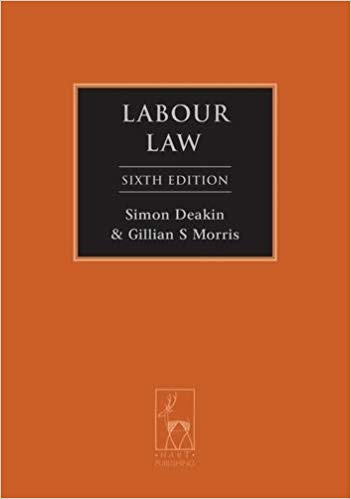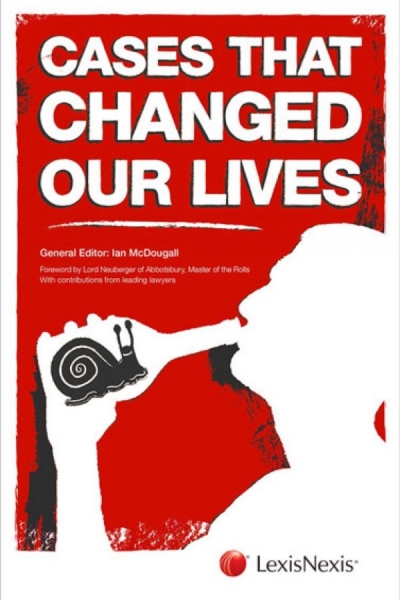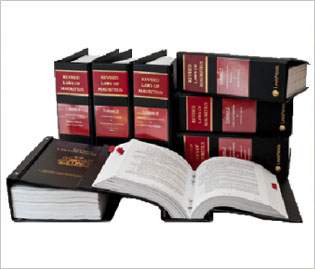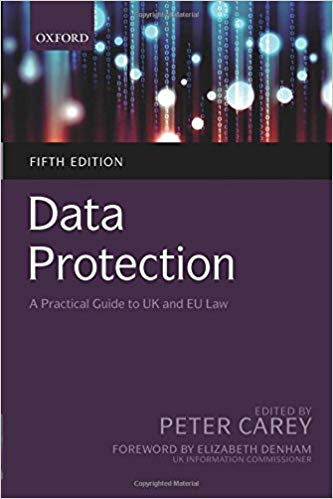Description
Labour law is a highly dynamic and complex field which can be properly understood only in its broader international and historical context. Deakin and Morris: Labour Law, a work increasingly cited as authoritative in the higher appellate courts, provides a comprehensive analysis of current British labour law which explains the role of different legal sources, as well as social and economic policy, in its development. It thus enables readers to obtain a deeper insight into likely future, as well as past, changes in the law. The new edition, while following the broad pattern of previous editions, highlights important new developments in the areas of the contract of employment, discipline and dismissal, equality law, EU law, employee representation, human rights, ‘work-life balance’ policies, trade union law and industrial action law.
The book examines in detail the law governing individual employment relations, with chapters covering the definition of the employment relationship; the sources and regulation of terms and conditions of employment; discipline and termination of employment; and equality of treatment. This is followed by an analysis of the elements of collective labour law – the forms of collective organisation, freedom of association, employee representation, internal trade union government, and the law relating to industrial action.
The sixth edition of Deakin and Morris: Labour Law is an essential text for students of law and of disciplines related to management and industrial relations, for barristers and solicitors working in the field of labour law, and for all those with a serious interest in the subject.
Table of contents
Chapter 1 Introduction
Labour law: the scope and nature of the subject
Historical development
Assessment: the prospects for labour law
Chapter 2 Sources and institutions of labour law
Introduction
Formal Sources of Labour Law
Voluntary sources
The role of courts and employment tribunals
Governmental institutions relevant to labour law
European Union law
Other international labour standards
Labour standards and private international law
Chapter 3 The employment relationship
Introduction
Contract or status?
The hiring process
Identifying dependent labour
Quasi-dependent labour
Public sector employment
Continuity of employment, qualifying thresholds, and equality of treatment for fixed-term, part-time and agency workers
Identifying the employer
Transfers of employment
Assessment
Chapter 4 Terms of employment and working conditions
Introduction
Sources of contractual terms and conditions
Written notification of terms
Construction, incorporation and variation of terms
Payment of wages and salaries
Working time
Health and safety and the working environment
Duties of obedience, co-operation and care
Duties of fidelity, confidentiality and privacy
Income security: sick pay and lay-off
Occupational pension schemes
Assessment
Chapter 5 Discipline and termination of employment
Introduction
Dismissal legislation: forms, aims and impact
Wrongful dismissal
The statutory concept of dismissal
Fairness of dismissal
Remedies for unfair dismissal
Economic dismissals
Assessment
Chapter 6 Equality in employment
Introduction
The origins, rationales and impact of equality law
Discrimination and prohibited conduct
Protected characteristics
The scope of protection against discrimination in employment
Enforcement
Positive action
Equal pay
Protection of pregnancy, maternity and family time
Disability discrimination
Assessment
Chapter 7 Collective organisation: trade unions and employers’ associations
Introduction
The rationale and role of collective organisation
International standards relating to collective organisation
Legal policy relating to collective organisation
Basic definitions and concepts
The role of trade unions in contemporary industrial relations
Chapter 8 Freedom of association and the right to organise
Introduction
Protection of trade union membership and activities in relation to employers
Contract compliance and union membership
Facilities for trade union representatives and trade union activities
Union membership and deductions from workers’ pay
Chapter 9 Collective representation and the law
Introduction
Collective bargaining and the law
Statutory rights of information and consultation
Employee involvement at transnational level
Co-operativa Europaea) and Companies formed by Cross-Border Mergers
Collective representation: prospects for the future
Chapter 10 Trade unions and their members
Introduction
The contract of membership
Statutory rights: an overview
Rights relating to union membership and discipline
Trade union elections
Trade union expenditure for political purposes
Assessment
Chapter 11 Industrial action
Introduction
Industrial action: role, rationale and international standards
Legal policy relating to industrial action: an overview
Liability in tort
The liability of trade unions in tort
The scope of statutory immunity
Industrial action ballots and notice to employers
Civil law remedies
Industrial action and EU law
Picketing
‘Essential services’ and emergency powers
Industrial action and contractual rights
Industrial action and statutory rights
Industrial action and social security benefits
Industrial action and the rights of union members
Assessment




